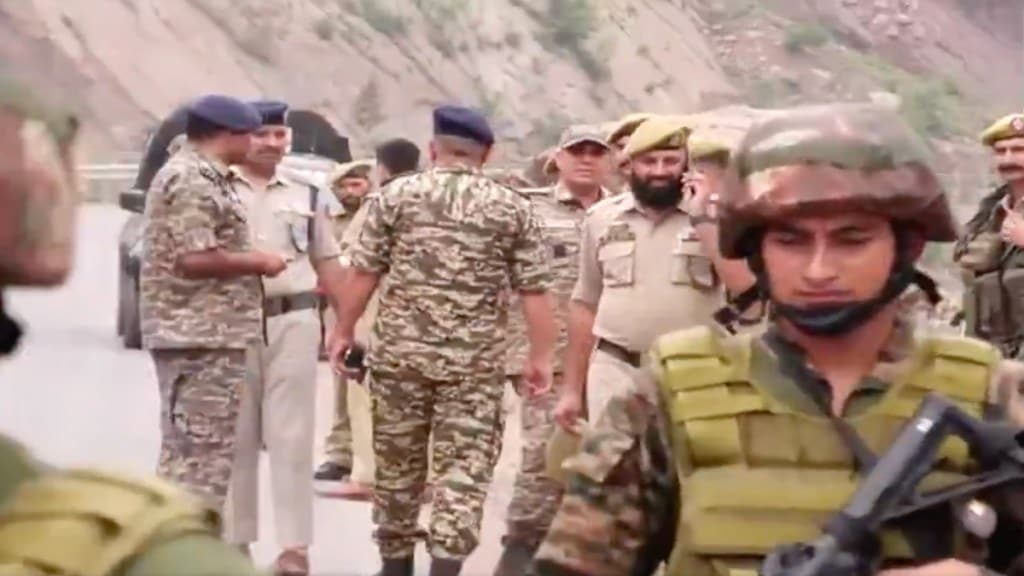The Counter Intelligence Kashmir (CIK) unit of the Jammu and Kashmir Police conducted raids at 10 locations across Pulwama, Ganderbal, Srinagar, and Budgam districts early Saturday morning. The crackdown was part of an ongoing investigation into a cross-border terror recruitment and financing module linked to Pakistan-based outfit Jaish-e-Mohammad (JeM).
According to police, the module was being handled by a JeM commander codenamed Abdullah Ghazi, who operates from Rawalpindi, Pakistan. Authorities said Ghazi was in “continuous touch” with local Kashmiri youth, attempting to radicalise them for recruitment into terrorist ranks.
Digital recruitment network busted
Investigators revealed that Ghazi had created a full-scale digital recruitment and radicalisation ecosystem. From identifying vulnerable youth to indoctrinating them with extremist ideology and assigning them operational tasks, Ghazi’s operations were sophisticated and cyber-savvy. He reportedly used encrypted messaging platforms, proxy numbers, and virtual identities to evade detection.
The breakthrough came through advanced surveillance tools including deep packet inspection and geo-tracking. Police managed to trace Ghazi’s digital footprints back to a three-storey safehouse in Pakistan, effectively neutralising the online cell before any major operations could be executed on Indian soil.
Seizures and suspects
During the searches, CIK officials seized significant digital evidence, including mobile devices and documentation believed to be linked to the recruitment network. Ten suspects have been detained for questioning so far. Their roles are currently under scrutiny as investigators seek to map the full extent of the local terror infrastructure connected to Ghazi.
This is the fifth major digital terror module dismantled by CIK in recent years, with earlier operations targeting handlers codenamed Ghazi Hamas, Sumama, Ghazi Baba, Ilyas, and Babar.
Cyber jihad
Security officials warn that with traditional recruitment networks weakening, Pakistan-backed groups are now leaning on “Cyber Jihad” to exploit emotional and religious sentiments online. Recruits are often approached through open forums and then moved to encrypted platforms where they receive instructions for logistical roles such as surveillance and arms transport.
Overground Workers (OGWs) within Kashmir play a vital role in this pipeline, feeding propaganda and promises of paradise to manipulate young minds into joining the terror fold.
Officials view this operation not only as a counter-terror success but also a humanitarian intervention. “Each cell we dismantle is a future saved from jail, violence, or death,” said a senior officer.

